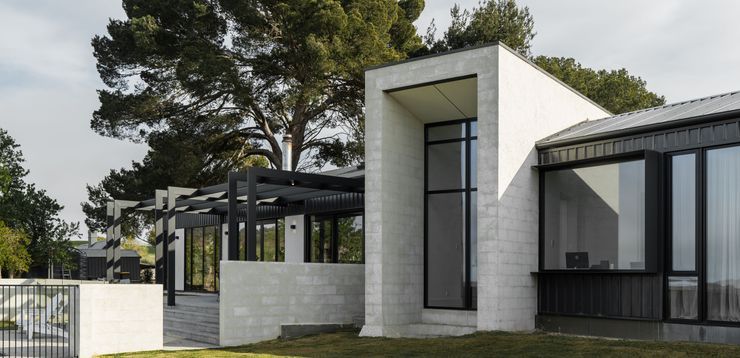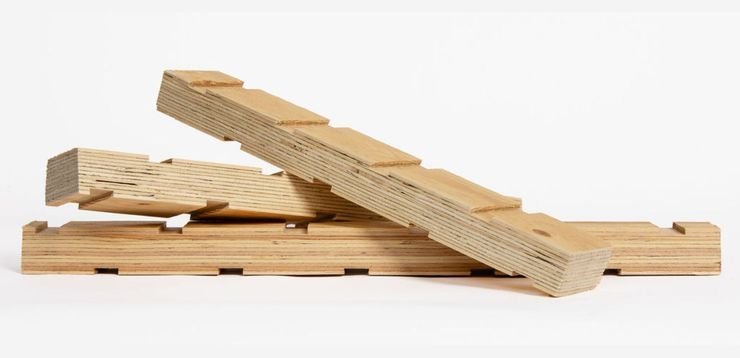When it comes to treated timber weatherboard cladding systems in New Zealand, the market is saturated – so when building or renovating, weatherboard cladding is an important thing to get right: choosing the wrong solution can shorten the lifespan of the cladding by years or even decades, and it can be costly to replace.
For these reasons, the peace of mind gained from choosing a good quality, New Zealand-made and environmentally friendly product is a valuable thing. And with KLC’s Generation 2 timber cladding solution, there’s a lot more on offer than just peace of mind.
New Zealand owned-and-operated specialist KLC, operating for over 25 years and boasting a senior management team with more than 200 years’ experience in this market segment, developed the groundbreaking weatherboard solution in response to a serious need for an H3.2 treated exterior cladding system in the building sector. Designed and manufactured in Aotearoa from its headquarters just outside Rotorua using local labour and wood, the product is also environmentally accredited five times over.
“The wood is Radiata pine, which is FSC-certified and it’s grown purposely to be used for this,” says KLC managing director Kevin Lewis. “And we also treat the wood in a very sustainable way, using a specialised MicroPro treatment.”
After the wood is cut at the sawmills, KLC then performs multiple processes leading up to the MicroPro treatment – among them kiln drying, sizing the timber, and docking out the defects that aren’t suitable for the final product. After finger jointing, the treatment process begins.
A high-pressure, sustainable treatment system
“It’s a high-pressure treatment system that doesn’t contain any chromium or arsenic, so it’s environmentally friendly,” says Kevin. “The high-pressure treatment allows deep penetration into the wood.”
This is an important differentiator for KLC’s product in comparison to many others on the market, Kevin says. Currently, the Building Code requires a minimum lifespan of 15 years for timber components that are moderately difficult to replace – and this includes exterior trim and joinery, and crucially, cladding.
But Kevin and his team believe that cladding should last much longer than that. “Can you imagine building a house and having cladding on the exterior that, after 15 years, needed replacing?” asks Kevin. “That’s what the Building Code specifies. So we saw that and decided to treat our weatherboards to H3.2, which gives you a 50 year treatment warranty – over three times more than the minimum requirement.”
A lot of this extra longevity comes from the effectiveness of the high-pressure system used in the H3.2 treating. It uses 14 bars of pressure – equivalent to being 140 metres under the sea – and this is what ensures that the treatment penetrates deeply throughout the wood. This is in contrast to H3.1 treatments, which cover 15-25 years and use a low-pressure system.
The MicroPro preservative system uses the well-proven combination of copper and tebuconazole. This preservative is approved in NZ Standards and is recognised for its ability to protect wood in all exterior uses up to and including very demanding H5 ground contact structural locations.
By virtue of KLC’s H3.2 treatment, the final product is protected from termites, borer and fungal decay, offers reduced corrosivity, and allows the use of hot-dipped galvanised fixing and fasteners to meet other Building Code requirements.
A distinctly New Zealand operation
Besides the high-quality treatment, the KLC Generation 2 timber cladding solution also features dual-coat oil-based primer, which provides excellent water resistance ready for any premium top coat applications.
H3.2 exterior claddings and profiles are also formaldehyde-free with no odour. Low volatile organic compounds are used in both the treatment and glue manufacturing process, and the MicroPro treatment system has independently-certified environmental credentials for GreenTag, Low VOC emissions and is an Environmentally Preferable Product.
These are the kinds of credentials that make KLC stand out, Kevin says – and a lot of it stems from the fact that all of the company’s processes are conducted right here in New Zealand.
“We make sure to use really high quality products and processes throughout the entire weatherboard production cycle – from the sawmill to when it leaves our site,” says Kevin. “We do all the processing on site ourselves, and the products used – for example, the glue used for finger jointing – are top-shelf because we want to deliver a premium product.
“And that’s reflected in the fact that the final product can last for a minimum of 50 years – and we’re proud of that.”
Learn more about KLC and its Generation 2 timber cladding system.














